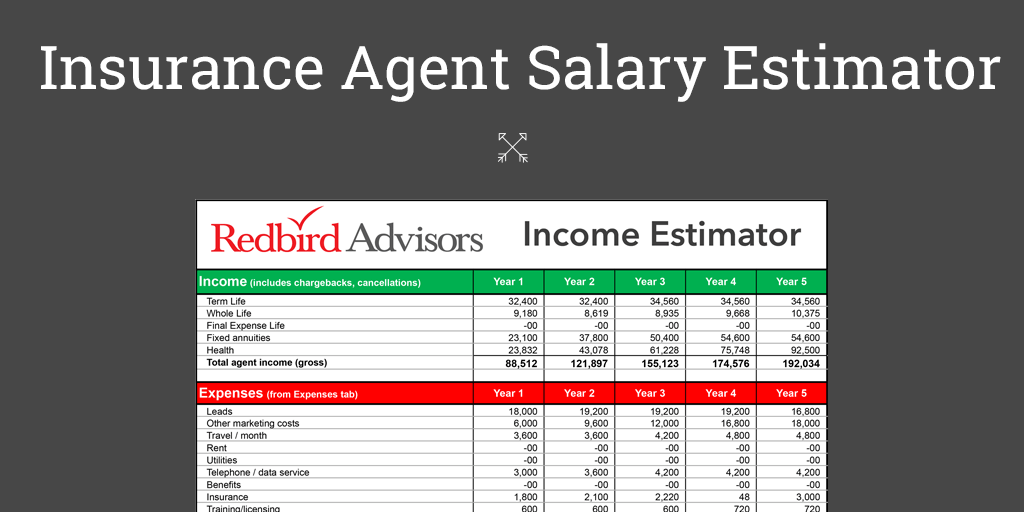
In sales management, every change, every opportunity, every moment is a coaching opportunity – Ali Mirza
How much time should you be spending coaching your sales team?
The reality is there’s no one size fits all approach to this answer. It’s like asking how long is a piece of string.
It depends. You spend all the time coaching your sales team until they are self-sufficient without you. Every chance, moment, and mistake is a coaching opportunity.
Commentary by Drew Gurley: In the insurance sales industry, constant coaching is pivotal. Each interaction, whether discussing insurance policies, networking on LinkedIn / social media, or mentoring new agents, serves as a vital learning moment for insurance agents. The objective is to build a sales team that not only achieves but surpasses their sales goals through ongoing training and improvement coaching program. Ideally this is in-person vs. virtual and dependent on modules.
Remember: sales coaching is constant. It is your job as a sales leader, and the same is said for any leader on any high-performing team.
- Do you see professional NBA coaches coaching their team only during timeouts? No.
- Pro-team coaches constantly yell, call plays and correct things on the floor.
- They run the plays, drills, and practice during the designated time. They give one-on-one feedback, and they course correct constantly and consistently. That is the reality of coaching efforts.
Drew Gurley adds: Similarly, in the insurance industry, the dynamic nature of client interactions and the continual updates to insurance products demand ongoing vigilance and adaptability from the team. Effective insurance sales training programs often include real-time feedback and role-playing, which are essential in preparing agents to handle a variety of client interactions confidently. This is an area every agency owner needs to dive in head first when it comes to maximizing their business development efforts.
What is sales coaching?
Sales coaching is developing individual salespeople by identifying areas for improvement and reinforcing behaviors to improve performance. Sales coaching time incorporates a whole host of things, including:
- Designated training and practice for sales skill
- Sales huddles and daily stand-up meetings
- Reinforcing behaviors that lead to success
- Asking questions to discover
- Refraining from giving them answers
- Course corrections that impact negatively on the team
- Allowing them to experience failure
- Setting clear expectations and holding the entire sales team accountable
- Tracking towards their sales goals and quota
Gurley’s Insight: In an insurance agency, daily stand-up meetings are not just routine check-ins but strategic sessions essential for aligning the team towards common sales goals and discussing effective insurance sales strategies. These meetings also serve as a platform for rapid problem-solving and sharing success stories, crucial for maintaining momentum and motivation in a results-driven field. Not doing this is a sure fire way to sabotage the growth of your book of business and have your entire team lose confidence in your role as their insurance sales coach.
In some teams, sales coaching falls to sales leaders, sales managers, and other high performers.
But let me be clear, the sales leader or Vice President of Sales is the visionary that guides the sales reps toward meeting or exceeding their sales goals by demanding excellence and inspiring the team.
Sales leaders have uncanny intuition when to intervene with course correction conversations versus implementing forcing functions to keep the team in line – all while refraining from constant hand-holding.
Weekly sales training
Many factors will determine your time coaching and training schedule, such as the team’s maturity, bandwidth, capacity, and more.
So, what is the minimum time spent on dedicated sales training? You should spend at least one hour per week of your coaching time on dedicated sales training and development. The training is grounded in a specified topic, and your training illustrates what “great” looks like to sales managers and sales reps alike.
You explain it to them fully, followed by cases, scenarios, situations, and examples. You also include the impact or pitfalls of not following the training you’re providing.
And finally, you have role-playing. Role-playing is the most effective coaching tool for all salespeople because it increases intensity, reduces roadblocks, and provides concrete solutions to your sales reps.
Drew’s Commentary: Specifically for insurance agents, role-playing is invaluable in simulating discussions about complex insurance products like life insurance or health insurance. This approach helps agents anticipate and skillfully handle objections, ensuring they are well-prepared for actual client interactions. Role playing should include inbound phone calls, cold calling, asking for premium payments, testing detailed product knowledge, how to ask for referrals, and all the other moving parts necessary to develop sales professionals.
Role play ensures every sales rep can get their mouths moving –warming them up.
Giving and rehearsing the talk track with your reps, including top salespeople, is more productive and keeps it fresh in mind on sales calls and client meetings.
VP of Sales is the visionary that guides the sales reps toward meeting or exceeding their sales goals by demanding excellence and inspiring the team.
Daily Huddles
You should have daily check-ins. This could be a 5-10-minute informal conversation, a 15-minute huddle, or a stand-up meeting.
Daily check-in requires more triaging and coaching on daily activities to ensure maximum output and maximum results.
What is this not? Ensuring your sales reps are making their calls or sending emails. That is, sadly, how most sales managers spend their check-ins.
Instead, ask your salespeople:
- What deals are you working on?
- What’s happening today?
- Who’s supposed to get back to you today?
- What are you going to say to the prospects?
- Why would this person say no?
- Why would this deal die?
These check-ins are less about time coaching and more about prepping them for the tasks at hand today.
You need to prepare them to be quick on their toes. And help them track towards their goal and reinforce behaviors that continue their success – including top performers.
Gurley’s Perspective: These targeted inquiries are also essential in the insurance sales process, where understanding client needs and crafting personalized insurance solutions are key. Daily huddles in an insurance agency encourage a proactive culture, ensuring agents are not only reactive but also strategic in their approach to client management and policy discussions.
Read: Guide to effective sales team stand-up meetings
Correcting behaviors
Coaching is constant.
You shouldn’t wait exclusively for set meetings or designated training.
If you see someone doing something wrong, quickly pull them aside, give them some feedback, and let them go.
You need to course correct. Sales leaders and the best sales managers will implement intervention methods before a sales representative’s performance review.
However, coaching time also includes sitting down with negative or disruptive salespeople and having candid conversations. Many times, this will include the use of performance improvement plans.
Commentary by Drew Gurley:
In the insurance industry, correcting behaviors is a crucial aspect of maintaining a high-performing sales team. This section of Ali Mirza’s article underscores a fundamental component of effective sales management, particularly resonant within the context of insurance sales coaching.
Immediate Feedback and Course Correction
Immediate feedback is essential, as Mirza points out. In insurance sales, where the sales process is complex and the information handled is often sensitive, timely feedback is critical to prevent the perpetuation of poor practices. For instance, if an insurance agent improperly handles an objection regarding premiums or inaccurately describes policy details, swift correction is necessary to prevent future errors that could lead to a loss of trust or compliance issues. Implementing quick, constructive feedback ensures that insurance agents learn from their mistakes promptly, helping to maintain the integrity and professionalism of the insurance agency.
Using Performance Improvement Plans
Performance improvement plans (PIPs) are particularly effective in the insurance business when standard coaching methods fall short. In an insurance agency, PIPs should be structured with clear, achievable objectives and a timeline for improvement, particularly in key areas such as lead generation, policy knowledge, and client interactions. These plans are often necessary when an insurance salesperson repeatedly struggles with certain aspects of their role, potentially affecting the overall performance and reputation of the agency.
Proactive Interventions Before Reviews
Mirza’s advice on implementing intervention methods before performance reviews is especially pertinent in the insurance industry. Waiting until formal reviews can allow subpar habits to become ingrained or negatively affect more clients. Proactive interventions enable agency owners and managers to address issues as they arise, thus maintaining a consistent level of service and professionalism. This proactive approach focuses not just on correcting poor behavior but also on reinforcing positive behaviors that align with the agency’s objectives, ensuring the insurance sales team remains aligned with business development goals.
Handling Negative or Disruptive Behaviors
Direct engagement with agents who exhibit negative or disruptive behaviors is vital. In the insurance setting, such behaviors might include poor client interactions, resistance to feedback, or failure to adhere to compliance standards. Having candid conversations is crucial to clarify expectations and the potential consequences of not meeting them. These discussions also provide an opportunity to explore the underlying causes of such behaviors, which may stem from misunderstandings, personal struggles, or a lack of motivation. Understanding these factors is essential for developing effective coaching strategies tailored to individual needs, ultimately helping to improve the performance and cohesion of the sales team within the insurance agency.
By focusing on these areas, insurance sales coaches can effectively guide their agents through challenges, enhancing overall performance and ensuring that the agency operates at its highest potential.
Coaching New Sales Reps
What about coaching new salespeople? New salespeople are different from the rest of your team. These individuals, on average, take 3-6 months to ramp up to complete productivity. Skill set and knowledge may be underdeveloped at first.
New reps need a significant amount of attention during their ramp-up period. You must optimize your onboarding processes and systems to optimize your coaching time.
Whether you’re welcoming a sales manager, rep, or SDR, the onboarding process must be tight, and this will also ensure you’re attracting top talent.
Consider new salespeople “experienced” after six months to optimize your coaching time.
Final Thoughts by Drew Gurley: The onboarding and ramp-up period for new insurance agents is critical. By integrating structured training sessions, mentorship, and continuous evaluation, new agents can be brought up to speed to not only meet but exceed expectations. This structured approach ensures a solid foundation is built, allowing for sustained success within the insurance agency.


